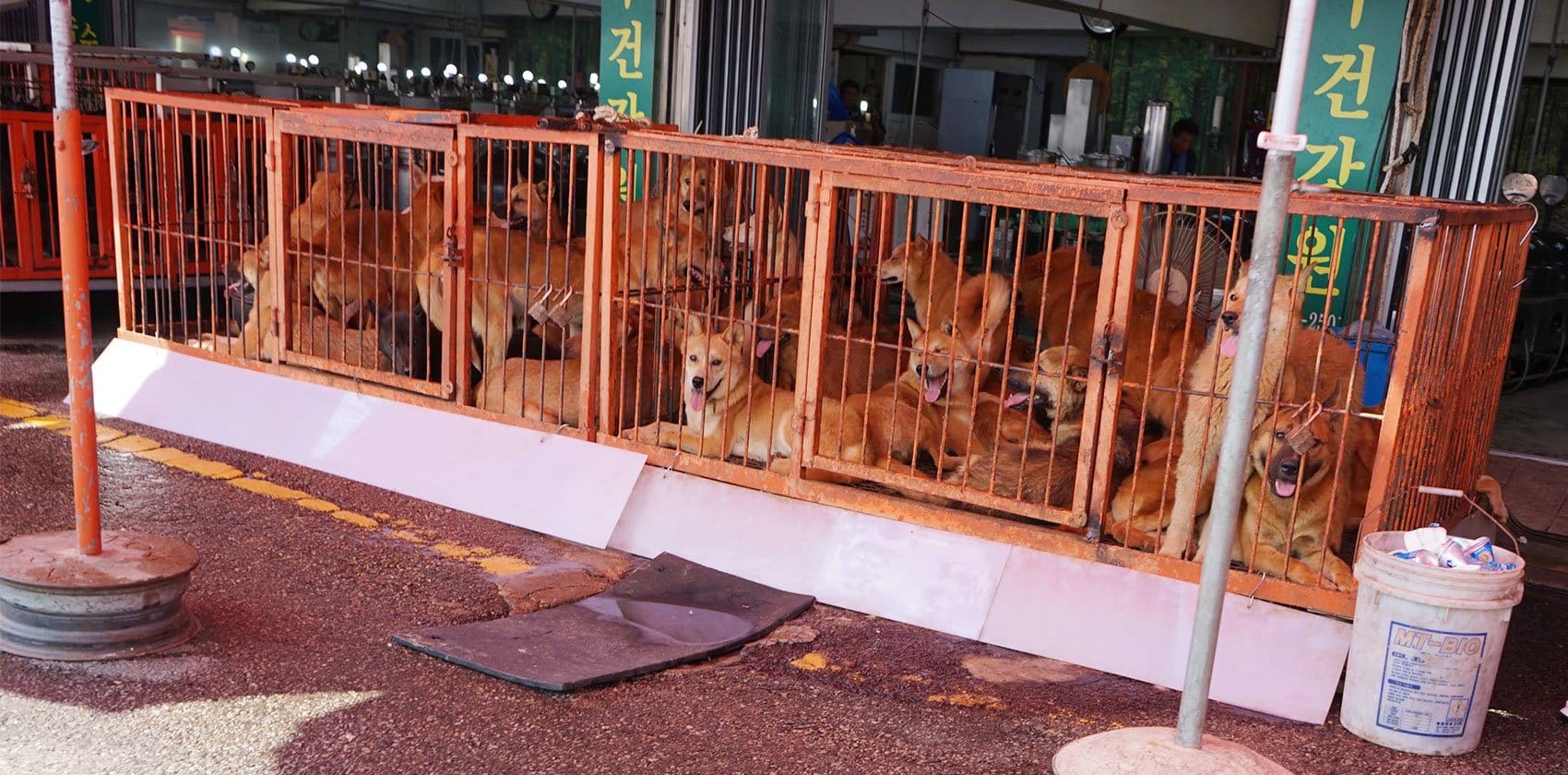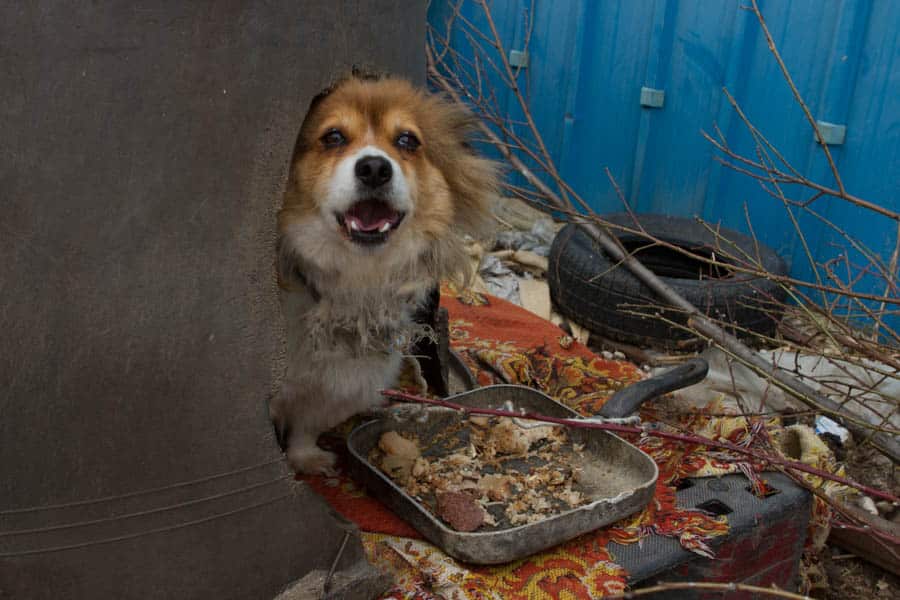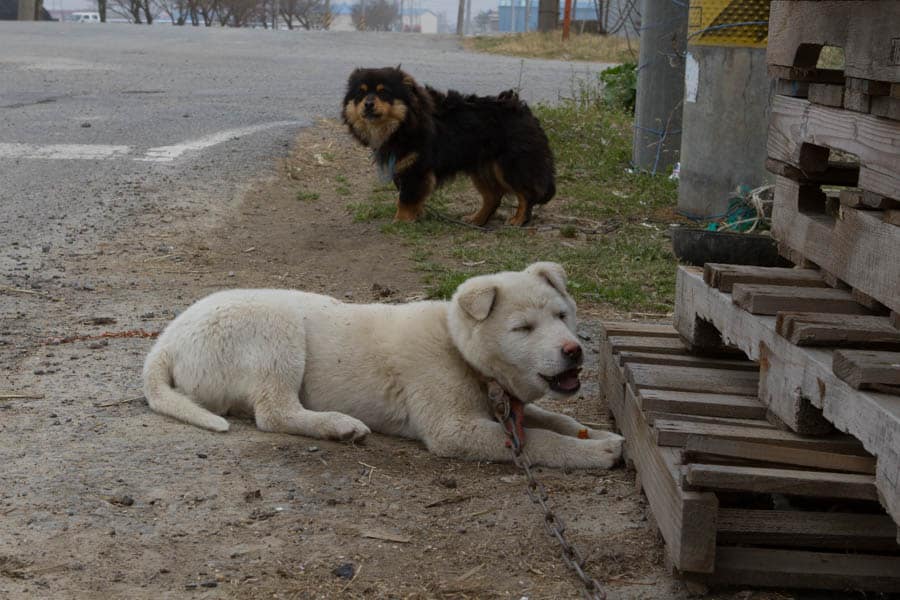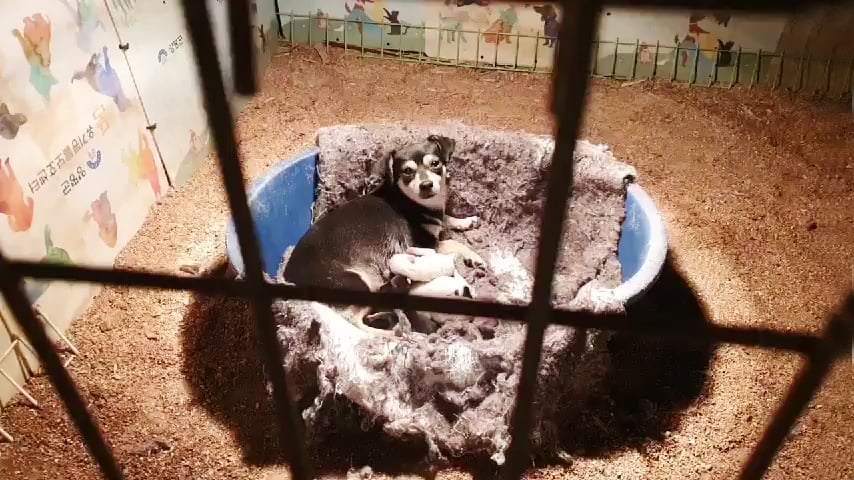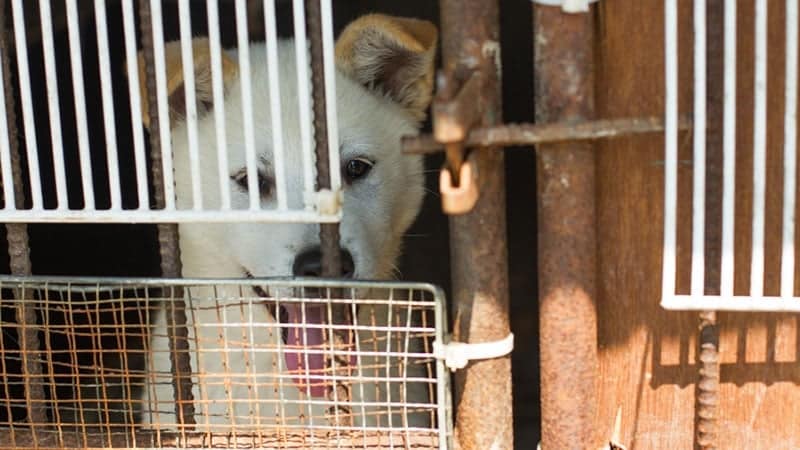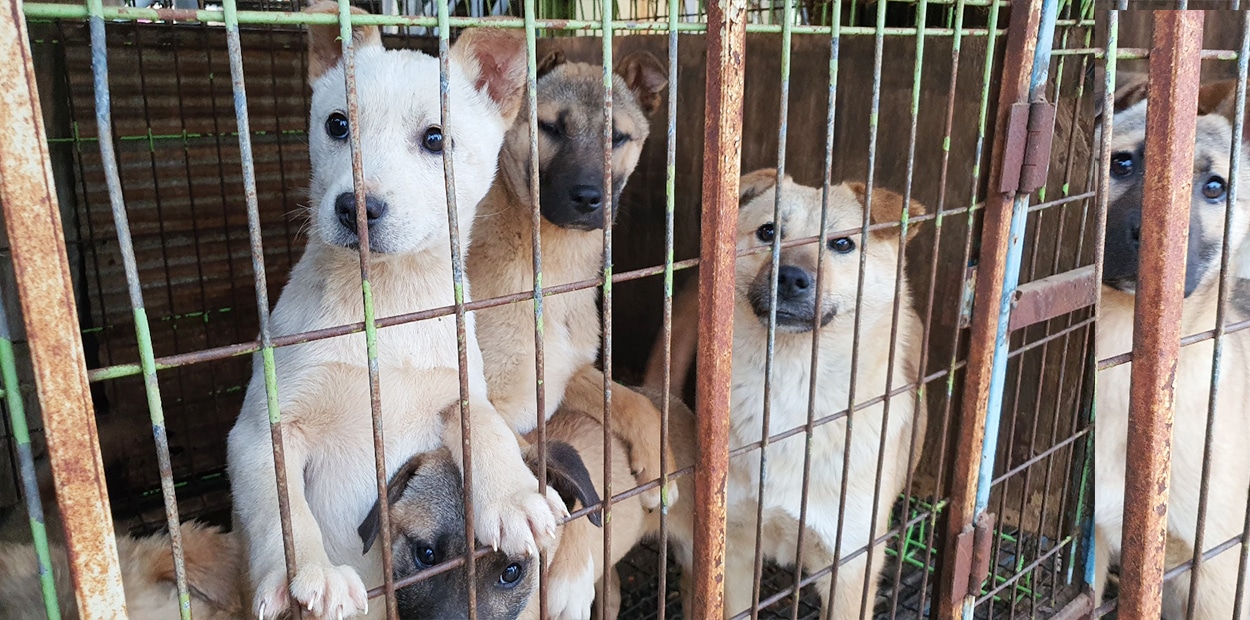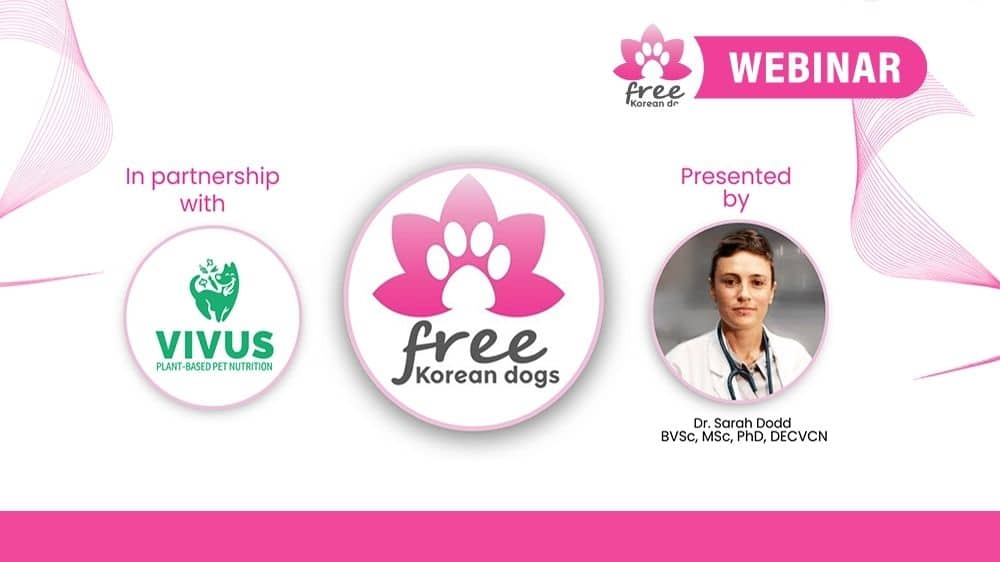The Dog Culture in Korea: Why We Should Care
Guest Article by Kris Choi
To put it lightly, the Korean dog culture is very different from that of Canada. The Western view of dogs as “man’s best friend” is very slowly taking hold in Korea, where Boknal, the unionized and protected dog meat industry, lack of effective and just animal protection laws, and operation of filthy puppy mills are still left unchecked.
First, we must understand how Koreans perceive dogs. In Vancouver and Toronto, when I walk my Yorkie, the children we encounter always want to meet Coco – two had even stopped crying upon marvelling at how cute and small she is. In Korea, however, most children were visibly scared and hid behind their parents, though they showed some curiosity. I was incredibly taken aback when my cousins were terrified of Coco and refused to hang their feet off the couch because Coco sat patiently in front of them on the floor. Koreans see dogs simply as animals that could strike at any moment.
Most dogs in the countryside are left outdoors, chained up to a nearby tree, living in plastic doghouses through heatwaves and frosts. That being said, there have been efforts to change this perception. Puppies who meet great parents are pampered with fashionable clothes, hand-cooked meals, matcha spas, visits to dog cafes with great facilities, and their own furniture, like stairs and strollers (though seemingly odd, the small dogs prevalent in Asian countries need these). There has been an increasing presence of dogs in the media. However, this became a double-edged sword, which increased Koreans’ interest in dogs, but many adopt without understanding the responsibility of taking care of one. Without research, many people initially adopt dogs because they are cute and cheap in Korea. However, once they prove to be burdensome and require more care, owners end up irresponsibly abandoning their dogs who have already grown loyal to their human counterparts. This is especially the case during the holidays.
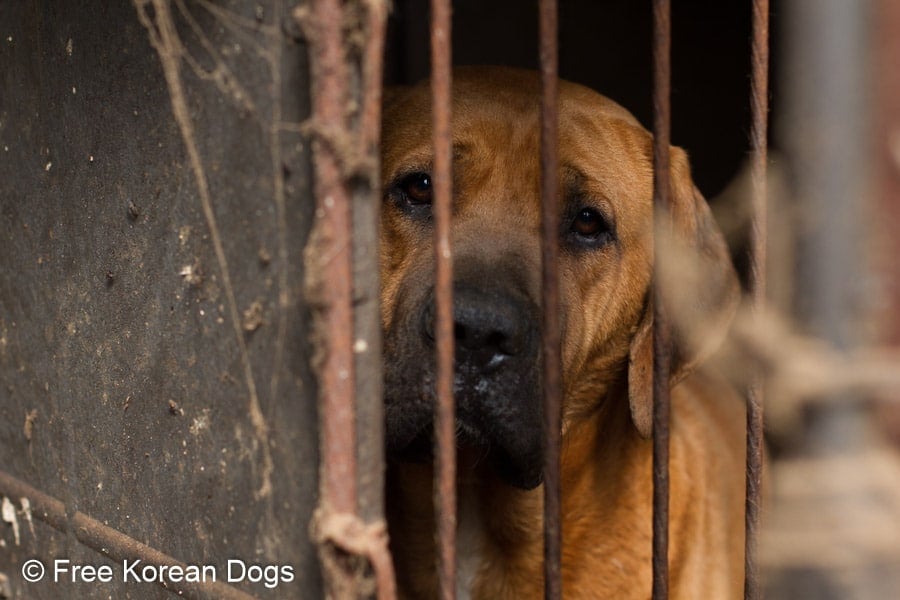
This trend of adopting and abandoning doubly affects the dog population in Korea, where puppy mills and dog farms profit. The concept of adopting from breeders has not been fully introduced in Korea, and most interested families adopt from pet stores. Rescues are stereotyped as dirty, wild, and untrained. Pet stores do not properly take care of their pets – they are kept in small cages and are not taken out unless for showing. More importantly, however, pet stores obtain their pets from puppy mills (though they refuse the claim when inquired). Pedigrees are not confirmed, and dogs are not well-bred or cared for. Puppy mills and dog farms are filthy, and owners rarely clean up the excrement. Cages that contain the puppies are piled on top of each other; the ones at the bottom are showered with the tops’ excrements, and the top often develops patellar luxation from their feet going through the bars. Puppies from these farms are all around unhealthy and genetically weak. They are starved so the owners can cater to the Korean market for cute and small dogs. Females are administered hormonal drugs to keep getting pregnant and maximize owners’ profits. Both the mother and her babies are at a higher risk of developing breast tumour. To top this all off, after adoption comes abandonment, and dogs end up in slaughterhouses or dog farms for human consumption.
Humane Society International estimates nearly 2 million dogs are slaughtered for meat every year in Korea. According to the Korea Animal Rights Activists (KARA), over 3000 dog meat farms are still in operation. While cultural views are slowly changing and disapproval of dog meat consumption increases, the unbalanced shift leads us to a new problem of overpopulation within a country that is not ready to accept these homeless dogs with open arms. Nevertheless, there are many dogs in Korea. Most are abused, abandoned, or neglected, and organizations like Free Korean Dogs work towards rescuing and finding them the forever families they deserve, educating the public about such atrocities, and advising how to break the cruel cycle that profits off inhumane treatment against beings that were literally bred to be our companions. Support from both within and outside Korea is needed to combat this problem. As you can see, any and all help from our adopters, donors, and volunteers allow the dogs we rescue to have a second chance at a good life.

Subscribe for Updates
Get our dogs in your inbox once a month, along with our latest news and events. We never send spam, and you can opt out at any time.
